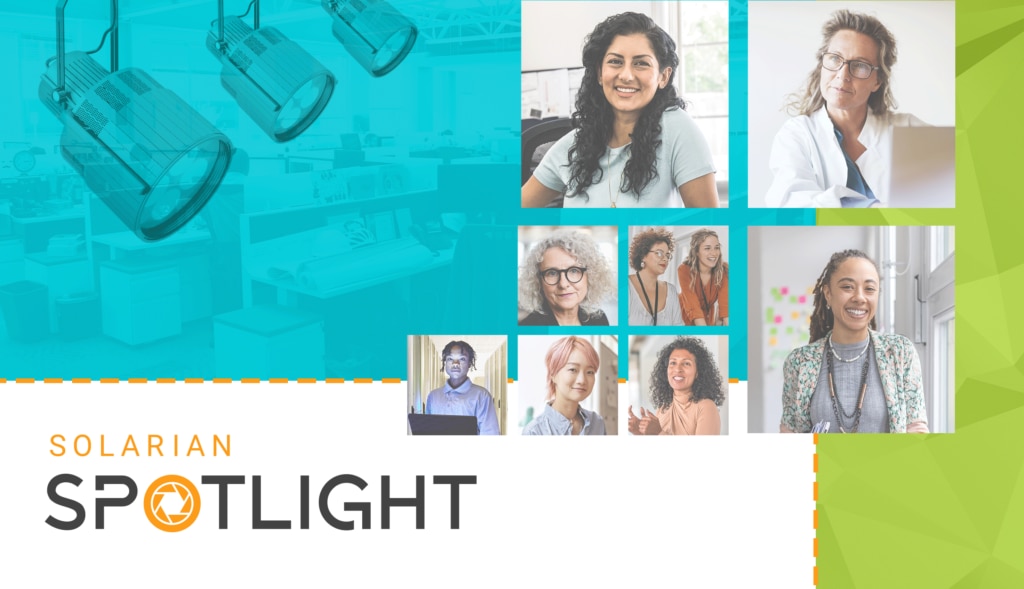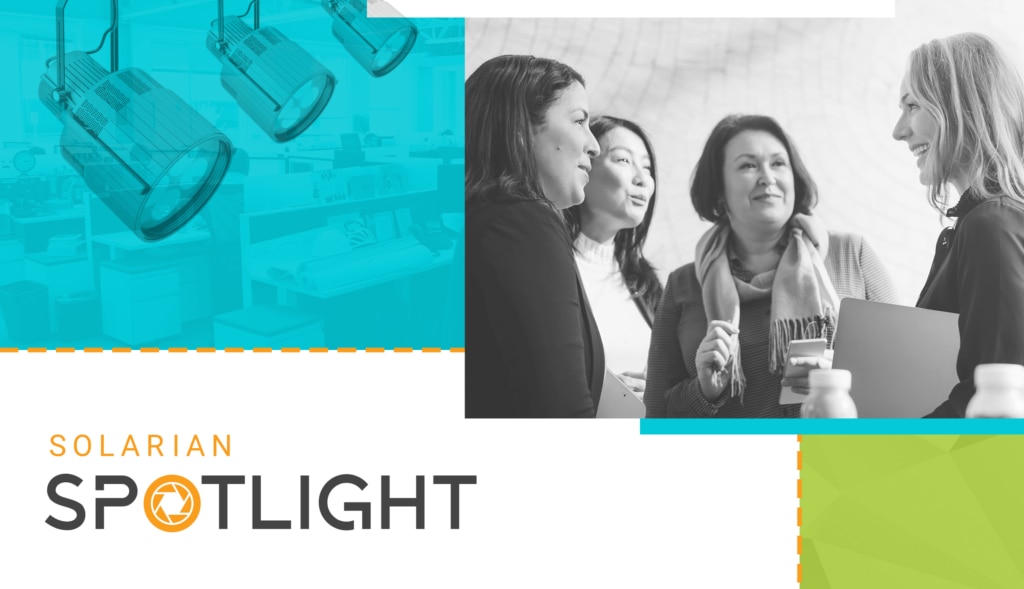I've spent much of my career in the data platform as the only woman in the room. I've built software, written books, framed service offerings, and spoken at conferences, all as the lone, diverse voice.
It's been reported that more women are entering IT as engineers, project managers, and developers, so I assumed I'd eventually meet more women like me who are passionate about SQL Server. However,
according to a recent analysis by Zippia, even though women hold 44% of STEM-related bachelor's degrees, only 28% of computing and mathematical roles are held by women. We also hold fewer than 20% of leadership positions in the tech industry. And all those numbers plummet for minority women.
Over time, I learned how important it is to seek out women in my workplace and community.
With 50% of women who go into tech dropping out by age 35, it's obvious we still have a big problem to solve. Today, I'm fortunate to hold a leadership role on the SolarWinds database product team, so I see how critical it is I support and champion women best as I can.
I'm thrilled to announce we're partnering with
Data Platform Women in Tech (DataWIT) group to create a webcast series. I've been part of this group in some form since 2009 and am excited for this opportunity to continue to support them in their mission to develop more women leaders in the data platform community. The partnership enables WIT to share their webcasts with a larger base of women in tech. Men are also invited, we don't discriminate! But the webcasts are designed to provide a safe and understanding space for women to learn more about data in tech as well as meet others who are in the same field, specifically Microsoft SQL Server database.
I also want to share the voices and opinions of other WIT members, their experiences, and perspectives. I recently interviewed two of my partners at DataWIT to understand how they've navigated the tech workplace and grown their careers, despite being the only women in the room. Here's what they had to say.
What is your background? How did you get into tech?
Mala Mahadevan: I am a Gen Xer. To me, and others like me from that time, it just happened. We didn't know much about tech or have a plan for getting into it, we just went with the flow, or with the wave, to be more precise. My first job was as a VB programmer. I then got into some xBase design and programming with dBase and FoxPro... and it grew from there.
Leslie Andrews: In the late 80s, my sister told me about a new MIS program at Texas A&M that she thought I would like, but I was not in a college frame of mind. By the mid-90s, a new CFO at my company asked where I saw myself in five years. I said I would like to work with computers, and he said, "Oh, MIS." I decided if someone I had just met said the same thing as my sister years earlier, I should probably look into it. So, I enrolled in the MIS program at the University of New Mexico, I graduated in December 1999 with a Bachelor of Management of Info Systems.
Why have you chosen to be a part of DataWIT?
Mala Mahadevan: WIT has always been a passion for me since the tech industry demonstrated discrimination towards women in significant ways. Over 20 years of my career, I saw minimal improvement in this regard. So, when the Professional Association for SQL Server (PASS) dissolved and there was an opportunity to independently manage and lead WIT for Data Platform Women, I jumped at the chance.
Leslie Andrews: I have been part of the New Mexico Technology Council WIT group for many years. I have only recently started working with the Data Platform WIT group. I enjoy helping women feel they can do hard things. Encouraging them to try and watching them succeed is such a great feeling. I hope they look back and see their interaction with me as life-changing, like the CFO who changed mine.
What would you say is the hardest part of being a woman in the data platform community?
Mala Mahadevan: You can never find the time to upgrade skills, work longer hours, etc. I feel demands on personal time are much higher for a woman compared to men, and workplaces also give women very little understanding in that regard. Since progress is judged strongly in terms of how fast you can learn something and how much "extra time" you can put into doing it, you are going to be behind the average man. It's even worse if you are a woman of color. That, to me, is by far the most frustrating aspect.
Leslie Andrews: For me, the hardest part of being a woman in tech is feeling intimidated by male bosses. I was finally able to overcome this when I had a boss who would always play devil's advocate and suggest the stupidest ideas because he liked the debate. I eventually learned to tell him the idea was stupid and get my point of view heard. Since then, I've gained a reputation for saying out loud what everyone else is thinking.
What is your most memorable experience in tech?
Mala Mahadevan: Getting the PASSion award at PASS Summit 2017. It was awarded for my dedication to volunteering, and I was selected from a pool of international applicants. Having thousands applaud as I received it will remain my best memory and greatest "tech" experience if you can call it that. Workplace awards, even if you get them, are mired in politics and do not mean much (to me at least). Being awarded for serving the community is so uplifting and empowering.
Leslie Andrews: In a previous role, I worked at a courthouse. I designed, developed, maintained, and enhanced a jury management system that automated the manual process of summoning. The end-to-end solution also tracked assigning panels for trials, outcomes, and payments. I am still very proud of it.
What excites you most about the SolarWinds and DataWIT partnership?
Mala Mahadevan: We have been looking to revive the women in tech talks that were the norm until Covid came along. We had to stop doing those because attendance dropped, and the majority of tech talks became available online. We greatly appreciate the partnership with SolarWinds to get more women speaking in the data platform! We really need it.
Leslie Andrews: The SolarWinds partnership is a great opportunity for the WIT group to regrow into the major user group it was before the dissolution of PASS. It will allow us to amplify the voices of brilliant women in the data platform!
Join us for upcoming events
You can learn more about SQL Server by attending these webcasts, and we hope you'll see how important representation is for women to be seen and heard.
Use this blog post to stay updated on opportunities to register and watch these webcasts on demand.
- You can watch the first webcast, "Migrate SQL Server to Azure MI Without Getting a Migraine," presented by Josephine Bush here.




